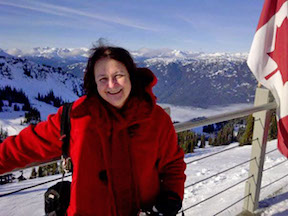Ulysses
1. What would have been significant about the choice of this protagonist? What are some ways Tennyson’s Ulysses is different from his classical forerunner?
2. What is the poem’s meter? Is it appropriate for its subject? What are other striking features of Tennyson’s use of sounds and word placement?
3. Tennyson wrote this poem as a young man, after the death of his friend Arthur Hallam. Can you see possible autobiographical elements in its tone and subject?
4. Why might a young man in the Victorian period have assumed the poetic mask of an old one?
5. What is the stated purpose of Ulysses's voyage? Does this purpose have more pragmatic or allegorical resonance?
6. What is Ulysses’s view of his home, family and occupation? Why do you think a segment of the poem is devoted to Telemachus’s virtues? Does his father seem to respect these highly?
7. What is Ulysses’s view of the nature of kingship? Does he have a high respect for the task of governing a portion of Greece?
8. What are Ulysses’s ideals for travel? Do they seem very concrete? (i. e., the remarks of an actual sailor and sea-captain?) What sights does he hope he and his men will see?
9. What may be important about the fact that the voyagers set off on their journey in twilight, as the moon is rising?
10. What are some rhetorical features of the conclusion, especially the last line? What are some final reflections prompted by the poem? Why do you think this poem has been highly admired?
11. How do you think we are intended to judge Ulysses and his voyage? In the author's view are he and his voyage altogether noble?
12. Which Victorian ideals or interests may they embody? Would you describe his proposed voyage as the embodiment of romantic aspiration, a love of exploration, or the Victorian work ethic?
13. How does this poem compare with "The Lotus-Eaters"? Is this a cheerful poem of ambition and effort? Are these emotions undercut by a sense of the weariness of age?
14. If you have read other of Tennyson's early poems (see questions on Tennyson, early poems), how do you find Ulysses different from his other protagonists? (e. g., does he experience a "fall" or change, as does the Soul in "The Palace of Art," or the Lady in "The Lady of Shalott"; or experience the loss of a romantic partner, as do the heroes of "Tithonus" and "Locksley Hall"?)
15. Of all Tennyson's early poems, this is the one which over the years has been most often assigned in courses. Why do you think this may have been the case? Is this a good choice?
“The Lotus-Eaters”
1. What purpose is served by the poem’s division into two parts? What are the poem’s meters, and how do these reinforce its meaning?
2. Who were the “Lotus-Eaters,” and how does our knowledge of the story of the Odyssey affect how we judge them? Are we expected to respect the “lotus-eaters”? To understand them?
3. What are some features of the poem’s language? Metaphors? Imagined landscape? In what ways is the poem heavily onomatopoeic?
4. Does the poem seem to express ambivalence or hesitation about the prospect of continuing the voyage? What effect is created by ending the poem with the Lotus-Eaters’ resolve to wander no more?
5. Why do the Lotus-Eaters wish to resemble the gods? What aspects of divinity do they project onto these deities? How might a Victorian reader have been expected to react to this notion of “godhead,” and how would this have affected his or her view of the Lotus-Eaters’ choice?
6. Can you describe the poem’s sequence? What is significant about the opening and close of each section?
7. How do you think the Victorian reader was expected to respond to the mariners’ complaint in the Choric Song, VI: “Is there confusion in the little isle? Let what is broken so remain. . . ’Tis hard to settle order once again.”
8. How may this poem be contrasted with “Ulysses”? Are there also common themes?
